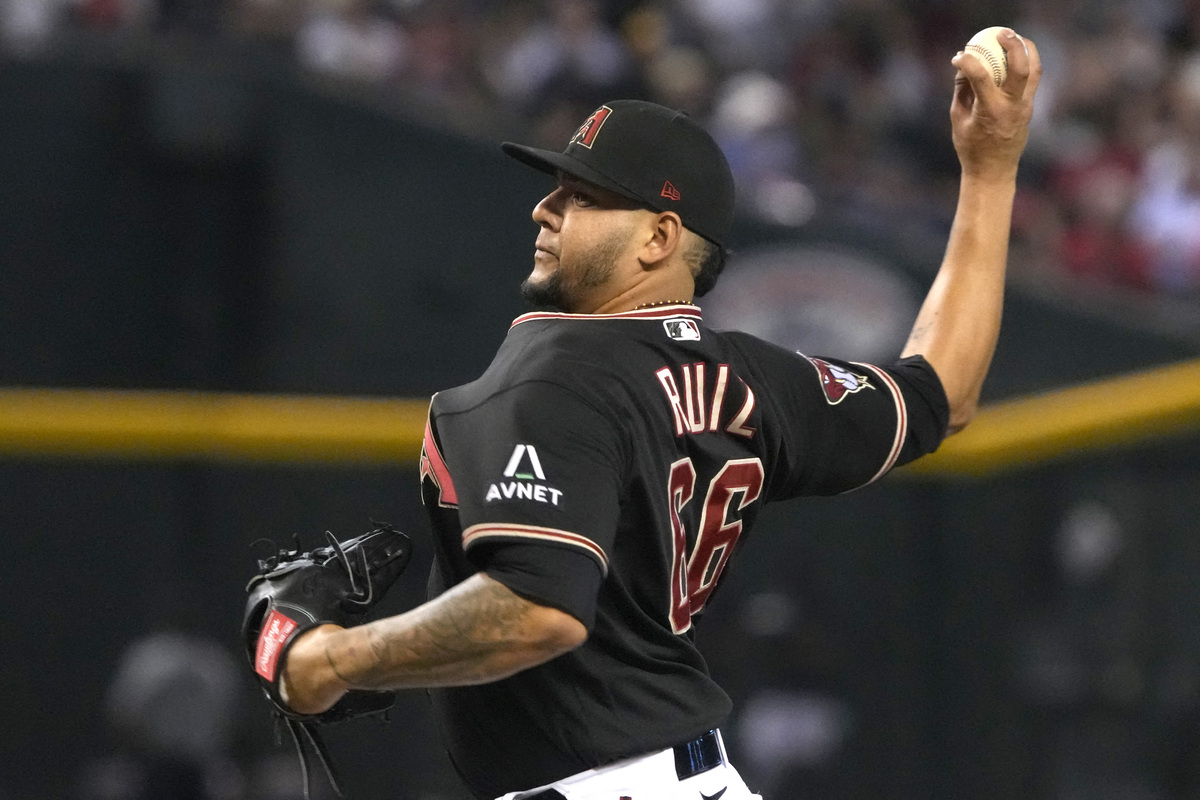Can Diabetics Play Soccer? Unlocking the Field for Diabetic Athletes

Yes, diabetics can play soccer without any issue as long as they manage their condition properly. Soccer is a physically demanding sport, but with proper planning and management of blood sugar levels, diabetics can participate in the sport and enjoy the benefits of exercise.
By monitoring their blood sugar levels regularly, taking necessary precautions, and making adjustments to their insulin and diet, diabetic soccer players can engage in the sport safely and effectively. With the right management strategies in place, diabetics can continue to lead an active and healthy lifestyle while playing soccer.
So, if you have diabetes and love soccer, there is no reason to hold back from enjoying the game.
Understanding Diabetes
Understanding diabetes is crucial for individuals who have the condition or those who interact with people living with diabetes. Diabetes is a chronic medical condition that affects how your body processes glucose, a form of sugar in your blood. There are different types of diabetes, including type 1, type 2, and gestational diabetes.
Type 1 diabetes is an autoimmune disease where the immune system attacks the cells in the pancreas that produce insulin. This type of diabetes is usually diagnosed in childhood or adolescence, and individuals with type 1 diabetes require insulin injections for managing their blood sugar levels.
Type 2 diabetes is the most common type and often develops in adulthood, although it is becoming more prevalent in children and teens. In this type, the body either does not produce enough insulin or the body becomes resistant to the insulin it produces. Type 2 diabetes can often be managed through lifestyle changes, including a healthy diet, regular exercise, and medication if necessary.
Gestational diabetes occurs during pregnancy and usually resolves after childbirth. However, it is essential to manage gestational diabetes to ensure the health of both the mother and the baby.
With proper management, individuals with diabetes, including both type 1 and type 2, can participate in various physical activities, including sports like soccer. It is crucial for individuals with diabetes to monitor their blood sugar levels regularly and take necessary precautions to ensure their safety and well-being during physical exercise.
Managing Diabetes For Physical Activity
|
People with diabetes can still engage in sports and physical activities, including soccer. It is important for diabetic individuals to carefully manage their condition while participating in these activities. Monitoring blood sugar levels is crucial before, during, and after physical activity. It is recommended to check blood sugar levels prior to starting the activity and have some quick-acting carbohydrates on hand in case of low blood sugar. Proper insulin management is also essential for diabetic athletes. Adjusting insulin dosage and timing based on the anticipated intensity and duration of the activity can help maintain blood sugar levels within a safe range. Tips for managing diabetes while engaging in sports and physical activities include:
Overall, with careful monitoring, proper insulin management, and communication with healthcare providers and sports instructors, diabetics can safely participate in soccer and other physical activities. |
Can Diabetics Play Soccer?
Debunking the myth that diabetics cannot participate in soccer, it is important to note that individuals with diabetes can still enjoy and excel in the sport. While there may be challenges faced by diabetic soccer players, with proper planning and management, they can still actively participate.
Diabetes is a silent disease, but it should not hinder someone from pursuing their passion for soccer. It is crucial for diabetic individuals, especially children, to see examples of professional football players who successfully manage their condition. This can serve as motivation and reassurance that diabetes does not have to limit their athletic abilities.
Coaches should be aware of the symptoms of high and low blood sugar and should provide a supportive environment for diabetic players. It is also important for individuals with diabetes to monitor their condition closely and make necessary adjustments in their management plan when engaging in physically demanding activities like soccer.
In conclusion, having diabetes does not mean that one cannot play soccer. With proper management and support, diabetics can actively participate in the sport and lead a healthy and active lifestyle.
Famous Diabetic Soccer Players
Playing soccer is not off-limits for individuals with diabetes. In fact, there are famous professional soccer players who have successfully managed their condition and excelled in the sport. Jay Cutler, Mark Andrews, Kendall Simmons, Blake Ferguson, DeAndre Carter, and Kevin Rader are some examples of diabetic football players who have achieved remarkable success.
It is essential for diabetic athletes to have proper planning and management to perform optimally. Just like anyone else, individuals with diabetes can participate in sports and exercise at the same level. Regular exercise can help them manage the disease and maintain better overall health.
However, it is important for coaches and teammates to be aware of the symptoms of high and low blood sugar and to support players in managing their condition. With proper motivation and guidance, individuals with diabetes can pursue their passion for soccer and lead an active lifestyle.
In conclusion, being diabetic does not hinder one’s ability to play sports such as soccer. With the right management and support, individuals with diabetes can thrive in the world of sports.
Precautions For Diabetic Soccer Players
Soccer is a popular sport for people of all ages and backgrounds, including those with diabetes. However, it is important for diabetic soccer players to take certain precautions to ensure their safety and well-being during matches.
One important consideration for diabetic soccer players is managing their diet and medications. It is crucial for players to maintain stable blood sugar levels before, during, and after matches. This may involve monitoring carbohydrate intake, adjusting insulin dosages, and having quick-acting glucose sources on hand in case of hypoglycemia.
In addition, diabetic soccer players should take precautions to prevent both hypoglycemia and hyperglycemia during matches. This could include checking blood sugar levels before and after the game, staying hydrated, and communicating with coaches and teammates about their condition.
Overall, with proper planning and management, diabetic soccer players can safely enjoy the sport while effectively managing their diabetes.

Credit: www.sportsinjurybulletin.com
Training And Conditioning For Diabetic Soccer Players
|
Diabetes should not hinder individuals from participating in sports like soccer. With proper planning and management, diabetic athletes can improve their performance and endurance on the field. Regular exercise and strength training play a crucial role in managing diabetes and maintaining overall health. Diabetic soccer players can benefit from incorporating strategies such as:
It is essential for coaches to be familiar with the symptoms of high and low blood sugar levels to ensure the well-being of their players. With proper care and management, individuals with diabetes can safely participate in soccer and other physical activities, leading active and fulfilling lives. |
Support And Resources For Diabetic Soccer Players
There are several organizations and communities that provide support and resources for diabetic soccer players. These include:
- Online forums and platforms where players can connect with other diabetic soccer players
- Diabetes-specific organizations that offer guidance and information on managing diabetes while playing sports
- Sports associations and clubs that cater to athletes with diabetes
These resources can provide valuable advice on managing blood sugar levels, staying hydrated, and maintaining overall health while playing soccer. Connecting with other players who have diabetes can also offer a sense of community and support. So if you’re a diabetic soccer player, know that there are resources available to help you navigate the challenges and excel in the sport you love.
Frequently Asked Questions Of Can Diabetics Play Soccer
What Sports Are Best For Diabetics?
Sports that are best for diabetics include walking, cycling, swimming, team sports, aerobic dance, weightlifting, resistance band exercises, and calisthenics. People with diabetes can still be athletic and participate in physical activity with proper planning and management. Diabetes shouldn’t hold you back from exercising or playing sports.
Can I Play Sports If I Have Diabetes?
Yes, individuals with diabetes can play sports and participate in physical activities at the same level as anyone else. Regular exercise helps manage the disease and improve overall health. Coaches should be aware of the symptoms of high and low blood sugar.
People with diabetes can engage in various sports like soccer, walking, cycling, swimming, weightlifting, and aerobic dance.
Can You Be A Footballer If You Have Diabetes?
Yes, people with diabetes can still be football players. Diabetes can be managed with proper planning and monitoring. Many professional footballers, like Jay Cutler and Mark Andrews, have successfully played the sport with diabetes. It’s important for diabetic children and their parents to see these examples and stay motivated.
Conclusion
Individuals with diabetes can absolutely play soccer with proper planning and management. It is important for athletes to monitor their blood sugar levels and make necessary adjustments to minimize the risk of hypoglycemia. By staying active and engaging in physical activity, individuals with diabetes can lead healthy and fulfilling lives, just like anyone else.
So, lace up those soccer cleats and enjoy the beautiful game!


